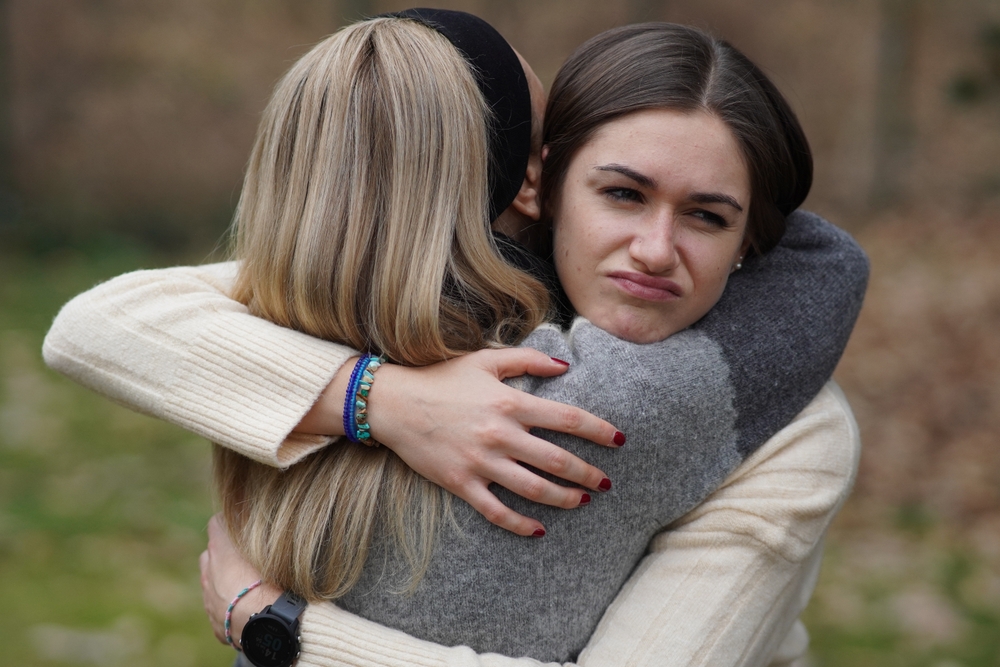Spending time solo isn’t just inevitable, it’s healthy and actually something you should enjoy. If you find that you’re struggling when you’re on your own, it could be because you’re feeling isolated and alone. Here’s how to tell if you’re lonely and what to do about it so you can start feeling better.
1. You feel sad during downtime.

If you find yourself feeling particularly sad or down during moments of solitude, it might be a sign of loneliness. It’s like when you stop being busy, feelings of loneliness creep in. This isn’t about being bored; it’s more about feeling a sense of emptiness when you’re alone. To tackle this, try engaging in activities that you genuinely enjoy and that make you feel fulfilled. It could be anything from painting, reading, to gardening. Finding joy in your own company can be a powerful antidote to loneliness.
2. You’re always on social media.

Spending excessive time on social media can sometimes be a sign of loneliness. It’s like you’re trying to fill the void with digital interactions. While social media keeps you connected, it often lacks the depth of real-life relationships. If you find yourself mindlessly scrolling for hours, it might be time to step back. Try replacing some of that screen time with face-to-face interactions. Joining clubs or groups that align with your interests can be a great way to meet new people.
3. You feel anxious about social interactions.

Feeling anxious about socializing, even when you crave companionship, is a paradoxical sign of loneliness. This anxiety can stem from a fear of rejection or a feeling of being out of practice with social skills. Start with small, low-pressure social interactions and gradually increase your comfort level. Remember, it’s okay to take small steps. Comfort in socializing often comes with practice and exposure.
4. You often feel misunderstood.

Feeling like no one really gets you or that you’re always out of sync with others can be a sign of loneliness. It’s not just about being around people; it’s about feeling connected and understood. To combat this, try opening up more in your interactions. Share your thoughts and feelings with friends or family members who you trust. Sometimes, being vulnerable is the first step to forming deeper, more meaningful connections.
5. You have a hard time sleeping.

Believe it or not, trouble falling or staying asleep can be linked to loneliness. It’s like your mind can’t settle because you’re craving connection. To help with this, establish a relaxing bedtime routine to help your mind unwind. This could include reading, listening to calming music, or meditating. Creating a comfortable sleep environment can also make a big difference.
6. You’re overeating or not eating enough.

Changes in your eating habits can be a sign of emotional distress, including loneliness. Maybe you’re eating more to fill the emotional gap, or you’ve lost your appetite altogether. Pay attention to these changes in your eating patterns. Mindful eating practices can help you reconnect with your body’s needs. Also, sharing meals with others, even if it’s a virtual dinner date, can make eating a more enjoyable and connected experience.
7. You buy lots of stuff you don’t actually need.

Retail therapy is real, and sometimes it’s a cover for loneliness. If you find yourself buying things to fill a void, it could be a sign that you’re feeling lonely. These purchases give a temporary high, but they don’t address the underlying issue. Instead of shopping, try investing time in hobbies or activities that bring you real joy. Engaging in fulfilling activities can reduce the urge to seek comfort in material possessions.
8. You refuse to entertain the idea of new relationships.

Ironically, loneliness can make you wary of forming new connections. Maybe you’ve been hurt before, or you fear rejection. But avoiding relationships only perpetuates the loneliness. Start small. Try reaching out to an old friend or making a new acquaintance. Remember, building relationships takes time, and it’s okay to take it slow.
9. You feel drained after socializing.

This might sound counterintuitive, but feeling exhausted after socializing can be a sign of loneliness. It’s because you might be putting too much pressure on these interactions to fill your emotional needs. Balance is key. It’s important to socialize, but also to recognize when you need a break. Quality of interactions often matters more than quantity.
10. You’re always the one initiating contact.

If you find yourself always being the one to reach out and make plans, it could be a sign of loneliness. It feels like if you don’t initiate, you’ll end up spending your time alone. While it’s great to be proactive, it can become draining if you’re always the one making the effort. Try talking to your friends about how you feel. Sometimes, people get caught up in their own lives and don’t realize they’re not reciprocating the effort. It’s also a good idea to expand your social circle to include more proactive individuals.
11. You’re jealous of other people’s social lives.

Catching yourself feeling jealous of others’ active social lives is a common sign of loneliness. You might find yourself scrolling through social media, feeling a pang of envy at others’ seemingly perfect social interactions. Remember, social media often portrays an idealized version of reality. Instead of comparing your social life to others, focus on what makes you feel fulfilled. Creating your own meaningful social experiences, even if they’re different from what you see online, is what truly matters.
12. You talk to yourself more than usual.

Talking to yourself more than usual can be a coping mechanism for loneliness. It’s like you’re filling the silence with your own voice. While self-talk can be healthy, relying on it for companionship might indicate you’re missing deeper human connections. Consider joining online forums or local community groups where you can interact with others who share your interests. Engaging in meaningful conversations with others can help alleviate the feeling of loneliness.
13. Your personal hygiene has gone downhill.

Neglecting personal grooming and self-care can sometimes be linked to feelings of loneliness. If you don’t see the point in dressing up or taking care of yourself because “no one’s going to see me anyway,” it might be a sign you’re feeling isolated. Taking care of your physical appearance can boost your self-esteem and mood. It’s not about impressing others, but about valuing yourself.
14. You get attached to strangers quickly.

If you find yourself getting overly attached to people you’ve just met, it could be a sign of loneliness. This quick attachment often stems from the desire to fill the void of companionship. While it’s natural to want connections, building strong, lasting relationships takes time. Be mindful of your emotional boundaries when meeting new people.
15. You dread weekends or holidays.

For many, weekends and holidays are times to relax and socialize. But if you find yourself dreading these periods, it could be due to loneliness. The lack of structured activities during these times can make the emptiness feel more pronounced. To combat this, try planning activities in advance. Whether it’s a personal project or a small gathering, having something to look forward to can make a big difference.
16. You often feel like there’s no one to turn to.

Feeling like you have no one to turn to in times of need is a strong indicator of loneliness. It’s not just about having people around; it’s about having meaningful connections you can rely on. Building these kinds of relationships takes time and effort. Start by reaching out and sharing more with those you trust. Sometimes, deepening existing connections can be more rewarding than trying to make new ones.
17. You talk to yourself like crap.

Loneliness can lead to an increase in negative self-talk. You might find yourself doubting your worth or feeling undeserving of companionship. This negative mindset can create a barrier to forming new relationships. Challenge these negative thoughts with positive affirmations. Remind yourself of your strengths and worth. Self-love is an important step in overcoming loneliness.








